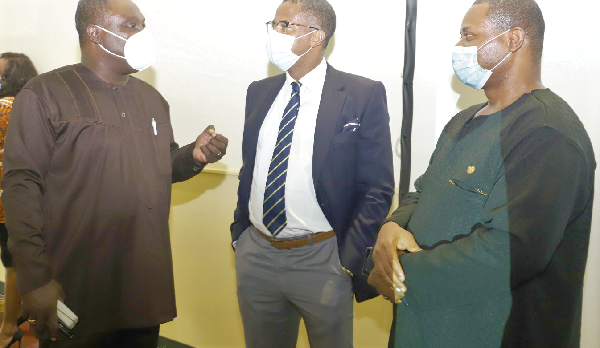
76% Favour election of MMDCEs — Survey
At least 76 per cent of Ghanaians, representing seven in 10, favour the election of Metropolitan, Municipal and District Chief Executives (MMDCEs) of the various local assemblies, a study by the Centre for Democratic Development-Ghana Local Government Survey has revealed.
The study showed that just 20 per cent of the people still wanted MMDCEs to be appointed by the President.
Advertisement
It said majority of Ghanaians, representing 71 per cent, opted for a non-partisan election format similar to the one used in electing local government councillors, while only 20 per cent of the people who wanted MMDCEs elected on partisan basis.
The survey randomly sought the views of 2,400 adult citizens across all the 16 regions and was carried out from May 23 to June 3, 2021.
Gender preference
Presenting the findings of the survey in Accra yesterday, the Director of Research of CDD-Ghana, Dr Edem Selormey, said the support for election of MMDCEs had been very high in both urban and rural areas of the country.
“Support for election of MMDCEs was generally high irrespective of one’s political party affiliation,” she said.
“Between 2008 and 2021, support for election of MMDCEs increased significantly across all age groups. Since 2008, support for election of MMDCEs has been generally high among both males and females from 56 per cent to 76 per cent,” she said.
According to her, in both 2017 and 2021, more males compared to females expressed preference for non-partisan election of MMDCEs.
However, preference for non-partisan election of MMDCEs increased by 20 percentage points among both sexes between 2017 and 2021.
In 2017, although supporters of the various political parties were nearly equally split in their preference for non-partisan or partisan election of MMDCEs, in 2021, support for non-partisan election of MMDCEs increased significantly across political parties.
Reasons for preference
Dr Selormey explained that those who wanted non-partisan election of MMDCEs believed such an election format would ensure that competent persons get elected (29 per cent), promote inclusivity/forestall “winner takes all” challenges (22 per cent), prevent partisan influences/conflicts (21 per cent) and promote transparency and accountability (19 per cent).
On the contrary, she said the majority of Ghanaians calling for partisan election of MMDCEs believed the current format for local government election had been tainted by partisan influences and must be opened up to promote public interest in local elections (54 per cent).



